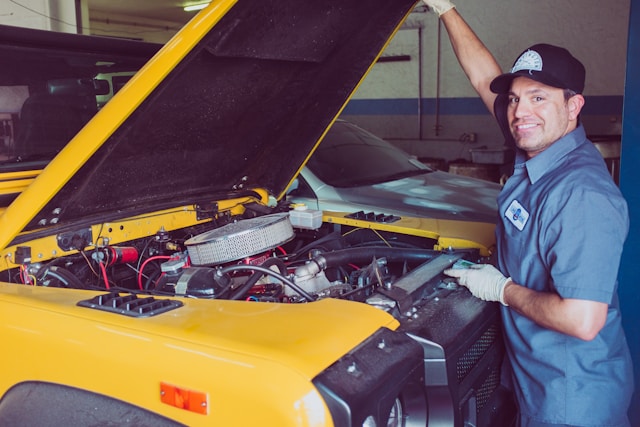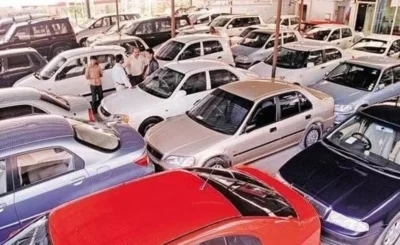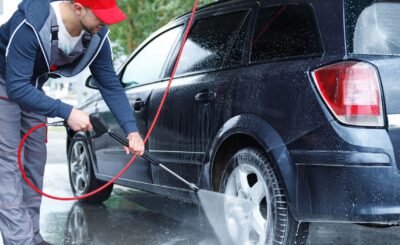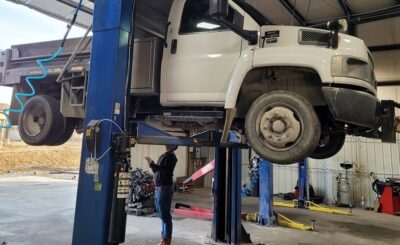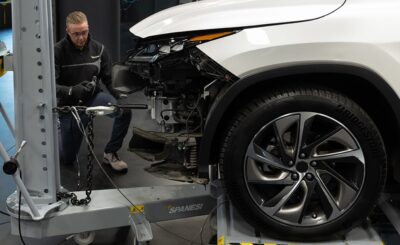The vehicles, whether they are new or old, need extra care to stay away from the abrasions. This can only be done by finding the best way of corrosion protection. Knowing the worth of these corrosion protection practices helps shield the car from road abrasives that may otherwise cause corrosion beneath the vehicle and other external parts.
How can Corrosion Protection be done in Car repair?
Corrosion protection is not just a maintenance task but a crucial step in preserving your vehicle’s structure and value. By employing the latest materials and techniques, both on the exterior and underneath the car, you can effectively ward off rust and corrosion, ensuring your vehicle’s longevity.
What are the types of car coating repairs?
So, here is a quick guide to the different ways of corrosion protection; you can apply this corrosion protection by visiting your nearest auto repair shop.
-
Anti-chip Ceramic Coating
The anti-chip ceramic coating is the standard procedure to reduce corrosion and is ideal for auto areas like solar panels.
Benefits
- Long-lasting protection from corrosion.
- Ability to repel water and dirt like nothing else.
- Provides tremendous durability to your car.
- Serves as chemical resistance and wash marring resistance.
- Also a way to protect from UV rays.
Cavity Wax Application
When it comes to regaining the appropriate corrosion protection on interior vehicle body parts like pillars, rocker panels, and other closed cavities, cavity wax is essential. The cavity wax application can be done by aerosol cans, brushing or by means of compressed air.
Benefits
- It’s a perfect barrier from the dirt.
- Protects your car against corrosion.
- Due to its hydrophobic nature, it has the potential to repel water.
- Keeps your car look shiny and stunning.
Undercoating
The undercoating strengthens the look of the underbody and keeps out dangerous corrosives. The undersides of vehicles are protected against gravel, stone, and salt with ValuGard Undercoat. This self-healing compound with an asphalt base reduces noise and helps shield your car from the elements.
The process of applying a composite material, such as rubber or wax, over a vehicle’s whole underneath to prevent corrosion is known as undercoating. It is intended to provide a coating layer on the car’s underneath.
Undercoating Benefits
- It serves as a shielding barrier to protect the underneath vehicle against abrasive materials like, for example, ice salt, snow, stones, mud, and debris.
- Increase the car parts’ lifespan.
- Almost the whole underside of your automobile, including the rim wells, floorboards, and frame, is protected by undercoating.
Rust Proofing Application
Rust and environmental factors, both manufactured and natural, can damage your car’s sheet metal. From the inside out, shield against substances that may cause rust-through. For total protection, ValuGard Rustproofing fills in cracks and holes to create a transparent, waterproof coating that is resistant to salt and magnesium chloride.
Rustproofing is the process of applying an anti-corrosion solution to a vehicle’s important, difficult-to-reach areas where rust readily occurs. Applying a vehicle treatment wax intended to address rusted automotive components is necessary for the process of rustproofing. You can apply this rust proofing by visiting car repair workshops.
Rust Proofing Benefits
- The uncovered sections of the vehicle, such as the fenders, tailgates, and top body panels, are vulnerable to water buildup and eventual rust. Rustproofing, then, aids in preventing the damaging effects of corrosion in these places.
- Rustproofing increases your car’s resale worth due to car protection from rust.
- Increase the car lifespan.
- Lessen the chance of further car repairs and also repair costs.


